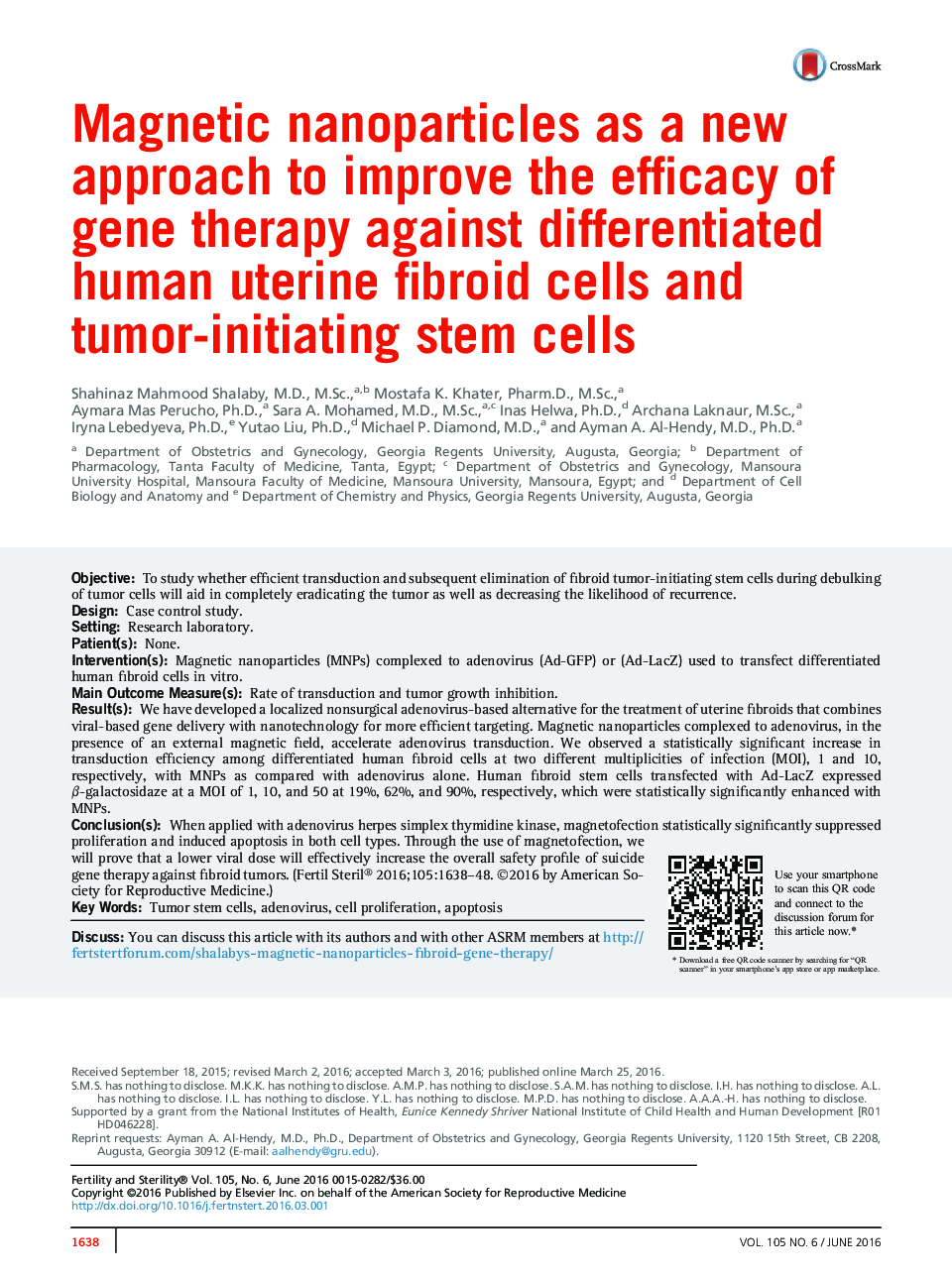| Article ID | Journal | Published Year | Pages | File Type |
|---|---|---|---|---|
| 6179504 | Fertility and Sterility | 2016 | 19 Pages |
ObjectiveTo study whether efficient transduction and subsequent elimination of fibroid tumor-initiating stem cells during debulking of tumor cells will aid in completely eradicating the tumor as well as decreasing the likelihood of recurrence.DesignCase control study.SettingResearch laboratory.Patient(s)None.Intervention(s)Magnetic nanoparticles (MNPs) complexed to adenovirus (Ad-GFP) or (Ad-LacZ) used to transfect differentiated human fibroid cells in vitro.Main Outcome Measure(s)Rate of transduction and tumor growth inhibition.Result(s)We have developed a localized nonsurgical adenovirus-based alternative for the treatment of uterine fibroids that combines viral-based gene delivery with nanotechnology for more efficient targeting. Magnetic nanoparticles complexed to adenovirus, in the presence of an external magnetic field, accelerate adenovirus transduction. We observed a statistically significant increase in transduction efficiency among differentiated human fibroid cells at two different multiplicities of infection (MOI), 1 and 10, respectively, with MNPs as compared with adenovirus alone. Human fibroid stem cells transfected with Ad-LacZ expressed β-galactosidaze at a MOI of 1, 10, and 50 at 19%, 62%, and 90%, respectively, which were statistically significantly enhanced with MNPs.Conclusion(s)When applied with adenovirus herpes simplex thymidine kinase, magnetofection statistically significantly suppressed proliferation and induced apoptosis in both cell types. Through the use of magnetofection, we will prove that a lower viral dose will effectively increase the overall safety profile of suicide gene therapy against fibroid tumors.
